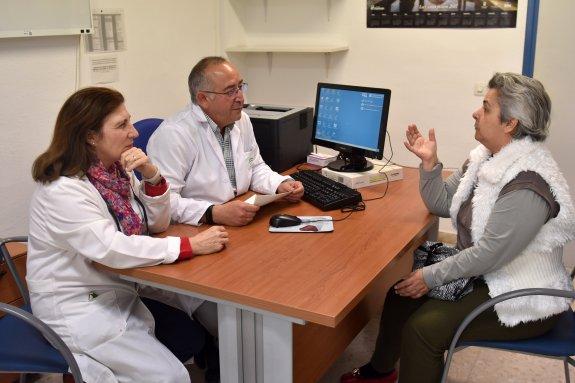Health centres study how people who look after relatives with cancer are affected by the situation
The research, which is taking place in Marbella, Torremolinos and Benalmádena, will help the authorities to design a plan to improve carers’quality of life
Mónica Pérez
Jueves, 4 de mayo 2017, 13:00
The World Health Organisation (WHO) defines quality of life as the individuals perception of their position in life in the context of the culture and value systems in which they live and in relation to their goals. How, then, is quality of life affected when someone becomes a carer to a family member who has cancer?
There has been very little international research into the quality of life, satisfaction and stress levels of non-professional carers (in other words, family members) who are looking after cancer patients in the palliative phase, says José Castilla, the nurse who deals with cases of this type at the health centre in Arroyo de la Miel.
He is now carrying out pioneering research with the help of doctors at some of the health centres on the Costa del Sol, which aims to monitor the effects on these carers when their relatives condition worsens. The results will help the Andalusian Health Service to design new strategies which can be put into practice to improve the quality of life of people who look after very sick family members.
The project, which also involves professionals from the Costa del Sol health authority and the collaboration of Cudeca and the Spanish Association Against Cancer (AECC), is being carried out via the health centres in Arroyo de la Miel, Torrequebrada and Benalmádena; Carihuela and San Miguel, in Torremolinos; and Leganitos and Las Albarizas, in Marbella.
The study focuses on analysing and evaluating the changes which have occurred in the quality of life of 180 people through questionnaires and the carers own medical history every time they go to their health centre.
The idea came from one of the many training courses I have done. My nursing coordinator at the time, Eugenio Contreras, suggested that I should take this idea forward and I thought it would be a good way of putting the theory into practice. Thats how it all began, and we have been preparing for this for four years now, explains José, who says the project has received support from the regional governments Progreso y Salud foundation, which has helped us develop the research project, individual doctors and health experts at Malaga University. The research team comprises 16 people, who monitor each of the carers who have volunteered to take part in the project.
Procedure
It is this direct patient-researcher contact which will determine the effects of caring for a patient from the time the period of palliative care begins.
The carers quality of life and stress levels will be evaluated at the start, then one month later, and then after three months and six months. At the same time, the number of times the carers use the health services themselves will be noted, and they will be asked how satisfied they are with the services they receive.
Another variable to be taken into account in the analysis is the socio-demographic profile of the people who are participating in the research project.
When the researchers have all the data collected during a six-month period, they can look at the effects that changes in the patients condition have on the carers quality of life. This will enable them to design a plan of action which is adapted to the specific needs of these carers, to improve their wellbeing.
The hypothesis from which we are starting is that the carers stress levels are going to increase as the cancer patients condition worsens, and that means that their quality of life will decrease. We also believe they will need more health care themselves, as a result of this, explains José Castilla.
One of the first changes in quality of life originates from the psychological impact of the situation, which can in turn manifest itself in physical health problems.
The first phase of the research has focused so far on designing computer tools which will be used for the data collection, but within 15 months the first results should be available. It is hoped that this study will shed light on a new aspect of health care and will have important national and international repercussions.
